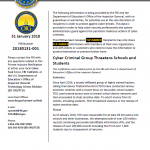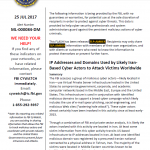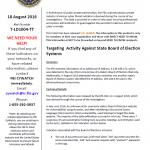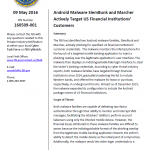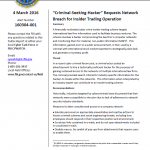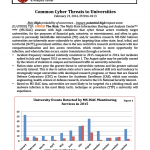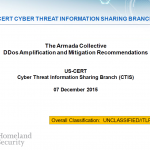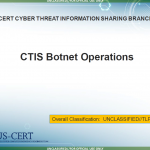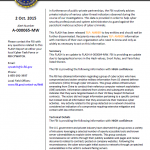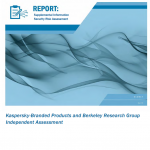
The Department of Homeland Security (DHS) National Cybersecurity and Communications Integration Center (NCCIC) reviewed the Independent Assessment, titled Information Security Risks of Anti-Virus Software (hereafter “BRG Assessment”), prepared by Berkeley Research Group, LLC (BRG), and dated November 10, 2017. Kaspersky Lab (hereafter “Kaspersky”) submitted the BRG Assessment to DHS as an exhibit to Kaspersky’s request for DHS to initiate a review of Binding Operational Directive (BOD) 17-01. The BRG Assessment, in part, responds to the NCCIC Information Security Risk Assessment (hereafter “NCCIC Assessment”) on commercial off-the-shelf (COTS) anti-virus software and Kaspersky-branded products, dated August 29, 2017. The NCCIC Assessment was attached as Exhibit 1 to an Information Memorandum from the Assistant Secreta1Y for DHS Cybersecurity and Communications (CS&C) to the Acting Secretary of DHS, dated September 1, 2017 (hereafter “Information Memorandum”). This document is a Supplemental Information Security Risk Assessment and will similarly be attached to an Information Memorandum from the Assistant Secretary for CS&C to the Acting Secretary of DHS.

